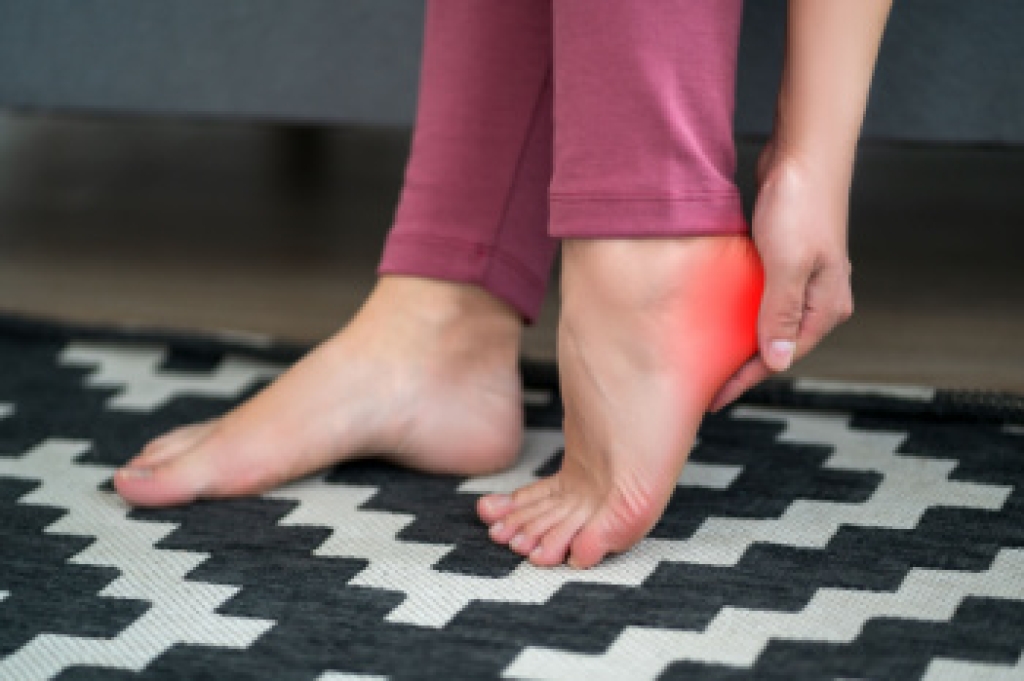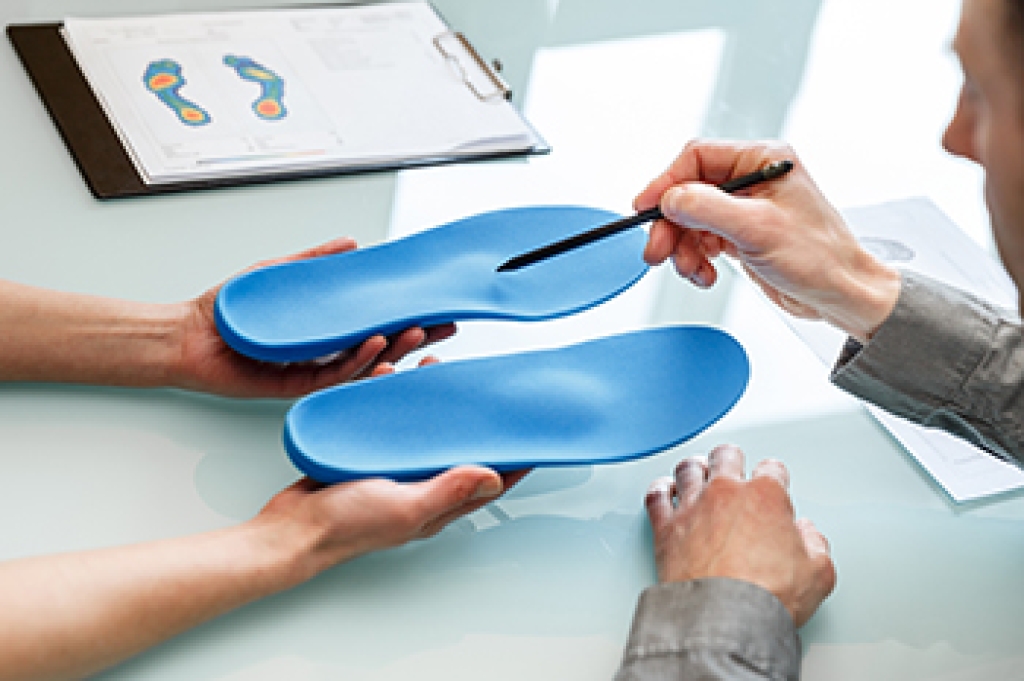Blog
Causes of Heel Pain

Heel pain affects the underside or back of the heel and can interfere with daily activities. The most frequent cause is plantar fasciitis, an inflammation of the thick band of tissue that supports the arch and connects the heel to the toes. Symptoms include sharp pain with the first steps in the morning or after periods of rest. Other causes include heel pad syndrome, which involves thinning or inflammation of the protective fat pad, and Achilles tendinopathy, which produces pain and stiffness at the back of the heel. If you have heel pain, it is suggested that you consult a podiatrist who can determine the exact cause, and provide personalized treatment.
Many people suffer from bouts of heel pain. For more information, contact one of our podiatrists of PA Foot & Ankle Associates. Our doctors can provide the care you need to keep you pain-free and on your feet.
Causes of Heel Pain
Heel pain is often associated with plantar fasciitis. The plantar fascia is a band of tissues that extends along the bottom of the foot. A rip or tear in this ligament can cause inflammation of the tissue.
Achilles tendonitis is another cause of heel pain. Inflammation of the Achilles tendon will cause pain from fractures and muscle tearing. Lack of flexibility is also another symptom.
Heel spurs are another cause of pain. When the tissues of the plantar fascia undergo a great deal of stress, it can lead to ligament separation from the heel bone, causing heel spurs.
Why Might Heel Pain Occur?
- Wearing ill-fitting shoes
- Wearing non-supportive shoes
- Weight change
- Excessive running
Treatments
Heel pain should be treated as soon as possible for immediate results. Keeping your feet in a stress-free environment will help. If you suffer from Achilles tendonitis or plantar fasciitis, applying ice will reduce the swelling. Stretching before an exercise like running will help the muscles. Using all these tips will help make heel pain a condition of the past.
If you have any questions, please feel free to contact one of our offices located in Allentown, Easton, Northampton, and Chew Street in Allentown, PA . We offer the newest diagnostic and treatment technologies for all your foot care needs.
Custom Orthotics For Teen Athletes

Parents, support your athletic teens with Custom Orthotics! As they excel in sports and activities, their feet need optimal care. Custom Orthotics provide the right alignment, reducing fatigue and enhancing performance. They help absorb shocks, minimize injuries, and cater to their unique foot structure. Don't let foot discomfort sideline their passion. Invest in their comfort and athletic future by choosing Custom Orthotics from our office. Call today for an appointment.
How Children Learn to Walk With Confidence

Children do not move like small adults. Early walking patterns evolve as bones lengthen, muscles strengthen, and coordination improves. During growth spurts, legs may seem awkward, feet may turn in or out, and balance may temporarily change. These shifts are usually part of healthy growth, but some patterns persist longer than expected. Frequent tripping, uneven shoe wear, toe walking, or complaints or signaling of leg fatigue can show that movement mechanics need attention. Sports, footwear choices, and surface demands also influence how forces travel through the feet and ankles. Addressing concerns early can support comfort, confidence, and efficient movement as children mature. Early guidance helps prevent strain and injury. If a child shows ongoing walking difficulties, pain, or unusual shoe wear patterns, it is suggested that you see a podiatrist for a proper diagnosis and appropriate treatment.
Making sure that your children maintain good foot health is very important as they grow. If you have any questions, contact one of our podiatrists of PA Foot & Ankle Associates. Our doctors can provide the care you need to keep you pain-free and on your feet.
Keeping Children's Feet Healthy
Having healthy feet during childhood can help prevent medical problems later in life, namely in the back and legs. As children grow, their feet require different types of care. Here are some things to consider...
Although babies do not walk yet, it is still very important to take care of their feet.
Avoid putting tight shoes or socks on his or her feet.
Allow the baby to stretch and kick his or her feet to feel comfortable.
As a toddler, kids are now on the move and begin to develop differently. At this age, toddlers are getting a feel for walking, so don’t be alarmed if your toddler is unsteady or ‘walks funny’.
As your child gets older, it is important to teach them how to take care of their feet.
Show them proper hygiene to prevent infections such as fungus.
Be watchful for any pain or injury.
Have all injuries checked by a doctor as soon as possible.
Comfortable, protective shoes should always be worn, especially at play.
If you have any questions, please feel free to contact one of our offices located in Allentown, Easton, Northampton, and Chew Street in Allentown, PA . We offer the newest diagnostic and treatment technologies for all your foot care needs.
How Orthotics Have Changed Over Time

Orthotics have come a long way from simple padding and basic shoe inserts used in ancient times to more advanced devices that support how feet move and feel pain. Early versions were made from natural materials to reduce foot strain while walking on uneven ground. Later, people began using leather and other materials to add arch support and help with foot fatigue. By the late 1800s and early 1900s, more structured orthotic designs helped support the arch and reduce pressure where people felt pain. Over time, knowledge about how feet function and more precise design methods improved these devices so they could help align the foot and reduce strain that causes discomfort in the heel, arch, and ankles. When foot bones, muscles, or joints become irritated or painful from flat feet, high arches, or altered walking patterns, orthotics can help ease symptoms by supporting proper foot alignment. If foot pain is stopping everyday activities, it is suggested that you schedule an appointment with a podiatrist to see how custom orthotics can help improve comfort and movement.
Custom orthotics are specialized shoe inserts created to support and align the feet according to each person’s unique structure and walking pattern. They are an effective way to relieve foot discomfort caused by conditions such as flat feet, high arches, plantar fasciitis, bunions, and heel pain. When the natural alignment of the foot is off balance, it can lead to pressure points, strain, and pain that affect how a person stands, walks, and moves. Orthotics work by redistributing weight evenly and supporting the arch to reduce stress on the muscles, tendons, and joints of the feet and lower legs.
Foot discomfort can develop for many reasons, including wearing improper footwear, long hours of standing, repetitive motion, or underlying structural problems. Over time, this discomfort can extend beyond the feet, contributing to knee, hip, or lower back pain. Custom orthotics help correct these issues by improving alignment and promoting more efficient movement. They are made using precise measurements and imaging to ensure the best fit for each patient, providing targeted support and cushioning where it is needed most.
Unlike generic insoles, custom orthotics are durable, medically designed, and tailored to your specific needs. Whether you are managing chronic pain, recovering from an injury, or simply seeking better comfort and stability, orthotics can make a noticeable difference in how your feet feel throughout the day.
If you are experiencing persistent foot discomfort or fatigue, it may be time to have your feet evaluated by a podiatrist. Call our office today for more information or to schedule an appointment.
If you have any questions, please feel free to contact one of our offices located in Allentown, Easton, Northampton, and Chew Street in Allentown, PA .

